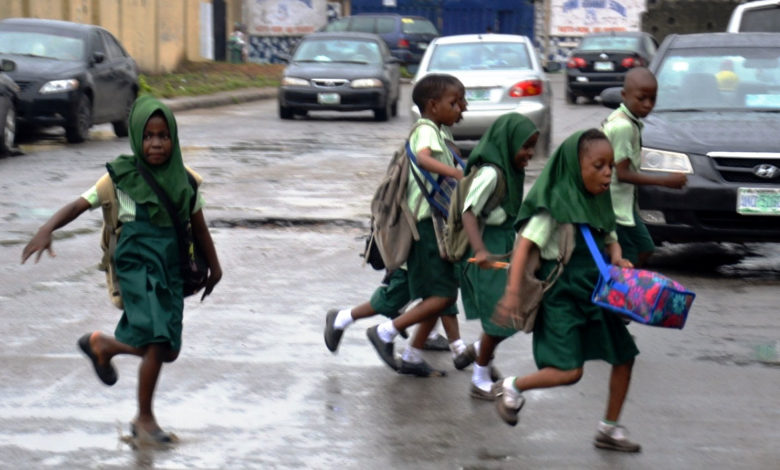COVID-19: 46 Million Nigerian Children Affected By School Closure, 4.2 Million From Insurgency Hotspots

The closure of schools due to the effects COVID-19 pandemic will affect at least 46 million students across Nigeria.
About 4.2 million students are from Borno, Adamawa and Yobe, where a concentration of most vulnerable children have been affected by the decade-long insurgency.
The schools’ closure, which was approved by the Federal Ministry of Education on March 19, was initially for a period of one month.
However, as the pandemic waves have grown stronger, the schools have remained closed, with no date announced yet for the reopening and for students to resume studies.
According to a report by The Nigeria Education Working Group (EiEWG), about 400,000 internally displaced children that were receiving formal education in camps and host communities have also been affected.
The report pointed out that the educational system in the North East already greatly stretched before the coronavirus pandemic due to the multiple crisis and population displacement in the region.
The report also raised challenges in terms of implementing the proposed response plan post COVID-19, including funding and the protection of staff.
“Given the suddenness of this crisis and its impact on the education system, it clearly appears that response is a matter of urgency.
“The response should start with school administration, from the Federal Ministry of Education, Universal Basic Education Commission (UBEC) and the State Universal Basic Education (SUBEB), from the federal level to the LGA level. Priority of LGAs will be determined on accessibility basis,” it said.
Part of the response plan include activities aimed to curb the spread of the coronavirus, and also mitigating the impact of the pandemic on the North East educational system.
“Awareness materials have been developed by different actors at national and international level,” the report said.
It also stated that target groups, which include children with special needs, IDPs in remote locations and girls are at the most risk of being excluded from any type of response plan, and will require programmes to cater for such children to also access education.
“As a sector, it is important to remember that within our target group which is IDPs in and out of camp locations, returnees and host community, there is a subset of children who can easily be excluded from any planned response and interventions. In this time of COVID-19, children with disabilities (special needs) and girls become the most vulnerable.
“When developing content for either TV/digital, remember that some children may be deaf and therefore require sign language to keep up. Partners can help adapt the materials available to be used for both deaf and non-deaf learners.
“Print media can also be published in braille for children who are visually impaired. Radio programmes are particularly great for visually impaired learners,” it said.
They also noted that for girls, key points to be considered would be the responsibilities of chores are bound to increase due to the closure of schools.
Because of this, programmes should be aired when they are less busy.
“Vulnerable girls and other high-risk groups could benefit more from the radios with preloaded content as well as the self- learning kits as they will be able to follow at their own pace when done with household chores,” the group noted.
The group also stressed the need for alternative means to make education available for the most vulnerable and hard to reach children in the most remote parts of the state.
It added that partners such as UNICEF, Save the Children had already begun developing such to adapt material for remote learning, as well as “self-learning and family/community based education.
“Utilizing the best practice from leading agencies and guided by the Federal Ministry of Education, self-learning and Family/community-based learning programmes allow learners to access learning when it is not available.
“Education sector actors will ensure a safe return to quality learning for learners, teachers and school community through preparedness activities as back to school campaign, school kit distribution and classroom rehabilitation.
“Some protection and MHPSS activities will be organized to ensure that safety and protection of children in and around school,” the report stated.
Support Our Journalism
There are millions of ordinary people affected by conflict in Africa whose stories are missing in the mainstream media. HumAngle is determined to tell those challenging and under-reported stories, hoping that the people impacted by these conflicts will find the safety and security they deserve.
To ensure that we continue to provide public service coverage, we have a small favour to ask you. We want you to be part of our journalistic endeavour by contributing a token to us.
Your donation will further promote a robust, free, and independent media.
Donate HereStay Closer To The Stories That Matter




